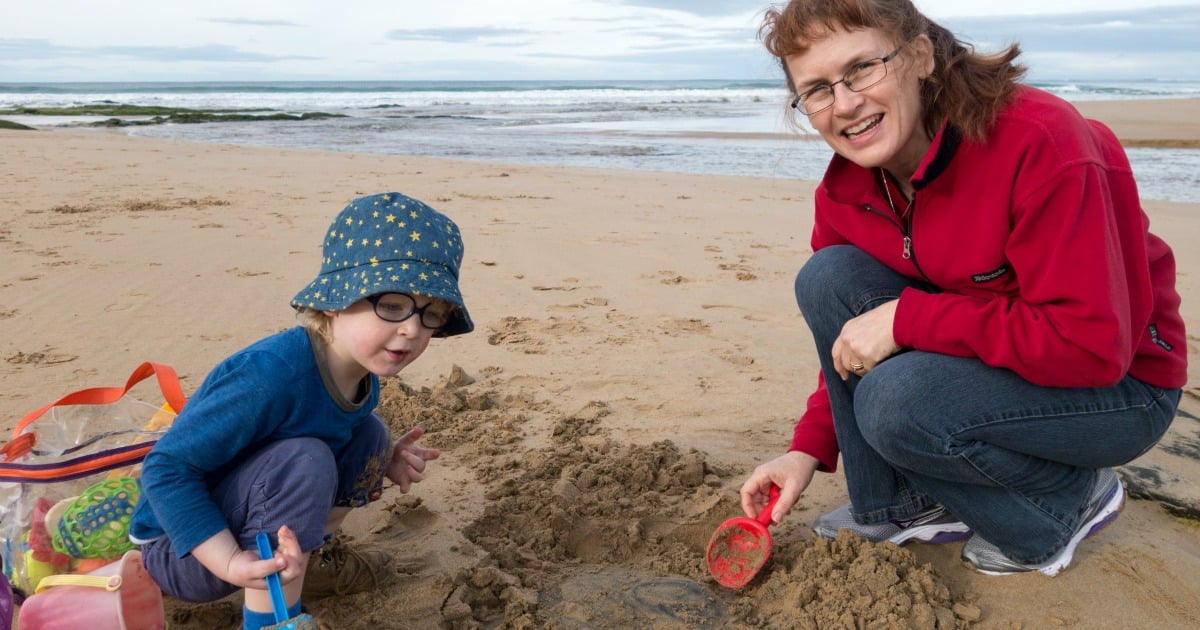
I’m driving south on Melbourne’s Western Ring Road, shouting. ‘Can you hear me?’
‘No,’ he says.
I try again, in capital letters this time. ‘I said, look at the digger.’
‘Where?’
‘Over there,’ I say, tapping at the side window before quickly returning my hand to the wheel. We’re driving past road works. There’s a lowered speed limit, which I’m obeying but some other cars aren’t. There are trucks—really big trucks—and there’s a concrete wall a few centimetres to our left.
He bursts into tears, howls. ‘I didn’t see it. Where’s another digger? Where’s another digger, Mummy?’
‘I don’t know. Please stop crying,’ I say.
We keep this up, or variations on it, all the way to Ballarat. Ninety minutes of me shouting, my son aged three-and-a-half not catching my words, or my not understanding his, which is worse. Over the past few months he’s developed an aversion to repeating himself and a sense of frustration at not being understood, in equal measure. So we drive and shout and occasionally scream (mostly him) and I try to speak clearly and slowly in order to develop his phonics and to show him the cows and horses and clouds and diggers, and try to not crash while I’m doing it.
His hearing loss is at 40 to 55 decibels down, depending on the ear and the tonal range of the sound. He has a common, treatable condition known as glue ear—basically gunk blocking his ears after infections as a baby. He’s not deaf, not even partially. He just can’t hear very well.




























































































